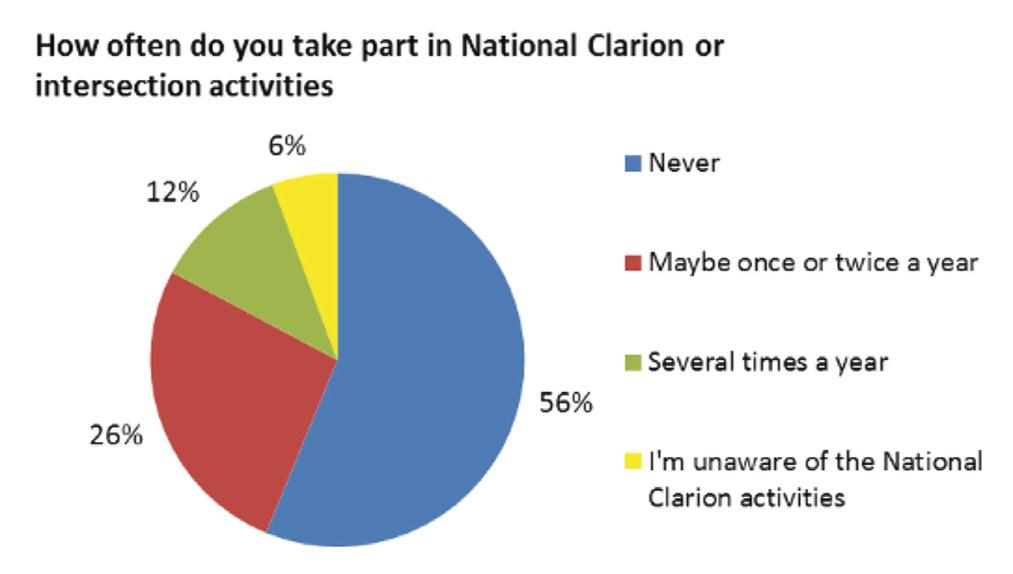
4 minute read
Look to the Future Honour the Past
Boots & Spurs LOOK TO THE FUTURE. HONOUR THE PAST
Like many members I ticked that we should ‘Focus on the future’ in last year’s survey That is certainly what those who formed the Club in 1894 did and I think we should honour that and seek to emulate it as best we can. I’ve been researching and writing about aspects of the pre-1939 socialist movement in Britain, including the Clarion, on and off since the 1970s, so I should be able to sum up the ethos of the paper and it’s cycling club quite easily. But I still find it hard; mere words seem inadequate. But I will try to give my interpretation. See also the ‘history’ page on the national website.
Advertisement
First we need to understand what ‘socialism’ meant in the 1890s when the paper was launched at the end of 1891 and our club in 1894. Nowadays it can mean anything from Bernie Sanders’ ‘democratic socialism’ to the appalling dictatorship of Kim Jong-un in North Korea. Back in the 1890s things were simpler. At a time of deep class divisions when all women and about a third of men were still denied votes in parliamentary elections the main preoccupation of the paper was the promotion of democracy and equality and opposing oppression of all kinds. There is still, clearly, a great deal to do about all of this but whereas in the 1890s few apart from socialists would support such aims nowadays many, perhaps most, people in Britain would at least claim to believe in these values.
The Clarion approach was social and cultural rather than political. However imperfect the world was we should anticipate the sort of society we would like to live in by, as far as possible, living it every day. There was, and is, a lot to be said for just getting out on your bike enjoying the company of your fellows and trying to make ‘Fellowship is Life’ a reality. Don’t wait for Utopia to arrive; anticipate it as far as possible. Enjoyment of life was not only for members of the club and readers of the paper. I wrote a short piece for the last Boots and Spurs about Cinderella Clubs. In those days Sunday schools promoted Christianity, the socialist Sunday schools of the period tried to produce little socialists. But the Cinderella clubs were simply focused on giving poor kids the sort of good time that more privileged kids enjoyed with free trips to the seaside and other treats. It was assumed that if you treated people right they would end up with the right sort of beliefs and attitudes.
What was unique about the Clarion was the promotion of such a wide range of social and cultural activities on a
really enormous scale. The German Social-Democratic Party, then the largest and most successful in the world, did something along the same lines but in the UK the Clarion was in a class of its own in a way that is now difficult to appreciate. There was not only the cycling club. There were theatrical groups, choirs, camera clubs, rambling clubs, and, of course, the Cinderella clubs as well as the Clarion Glee Club, plus the Clarion Fellowship which sought to unite them all.
Cycling club reports in the issue of 3 July1914 - just before that outbreak of war - began with nine from various ‘unions’ covering London, Birmingham, Manchester and Scotland. This was followed by 95 very brief reports from the clubs themselves, laid out in alphabetical order from Ashton-under- Lyne to York. The same page also featured three reports from Clarion swimming clubs, one from the Clarion Ramblers in Rochdale, and another from the Clarion Scouts in Glasgow. In addition there was a Clarion Fellowship report from its national secretary announcing a campaign to try to raise the paper’s circulation to 100.000. But where, some will ask, did Clarion socialism fit in? It was assumed that ‘politics’ could be left to look after itself. According to Tom Groom, or ‘the O’Groomio’ – silly nicknames and self-deprecation were compulsory in the Clarion – the key task was to create the desire for a better society. In a ‘Cyclorama’ piece later in 1914 he put it like this. ‘When that desire is great enough the professional politician will supply the goods, whether he calls himself Liberal, Tory or Labour Man. Our work is to create that desire.’
No doubt he underestimated the importance of politics and politicians, but nevertheless what the Clarion stood for and our Club still tries to stay faithful to is well worth preserving. Not everyone will agree with every aspect of my interpretation. Great! Who would want to be in any organisation where there was no disagreement or debate? Ian Bullock
If you want to know more about the history of the Clarion movement and the cycling club in particular then get yourself a copy of the club’s history “Fellowship is Life” by the late Dennis Pye, which can be ordered from the club shop on the website price £8








